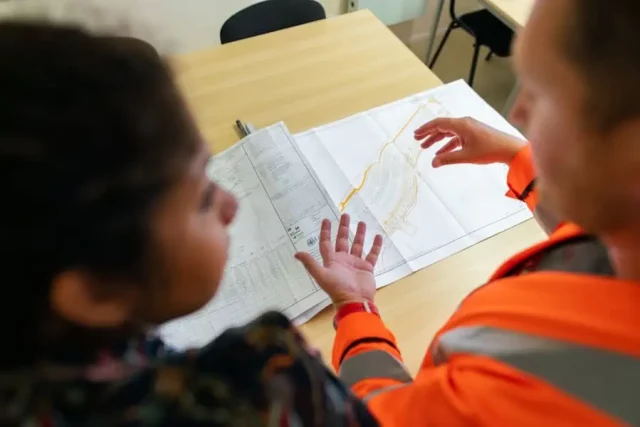Finding the right land for acquisition is a crucial step for various purposes, including real estate development, building projects, agriculture, or investment opportunities. However, the process of land acquisition can be complex and requires careful planning and due diligence. In this comprehensive step-by-step guide, we will explore the key considerations and actions involved in finding land for acquisition. By following these steps, you can navigate the process successfully and secure the perfect land for your needs.
Define Your Requirements And Goals
Defining your requirements and goals is a critical initial step in the land acquisition process. It involves clearly identifying the purpose of the acquisition and establishing specific criteria for the desired land. Consider factors such as location, size, zoning regulations, proximity to amenities, and accessibility. By defining your requirements, you can narrow down your search and focus on land that aligns with your goals. This clarity helps streamline the entire acquisition process and ensures that you find the right land that meets your specific needs. It serves as a guiding framework for making informed decisions and maximizing the potential of the acquired land.
Conduct Thorough Research
Thorough research is crucial to identify potential land acquisition opportunities. It involves gathering relevant information and data to make informed decisions. Researching potential locations and regions helps identify areas that align with your goals and requirements. Examining the local real estate market provides insights into land prices, trends, and future growth prospects. You can explore available land parcels by utilizing resources such as online listings, real estate agents, and land registries. Thorough research enables you to make well-informed choices, mitigate risks, and identify the best opportunities for land acquisition that align with your vision and objectives.
Engage Professional Help
Engaging professional help can greatly simplify the land acquisition process. Real estate professionals who know the ins and outs of real estate investments can provide valuable advice and help with land acquisition processes. The complexities involved in acquiring land necessitate the expertise of qualified individuals experienced in the field. By partnering with professionals who specialize in land acquisition, you can access their knowledge and guidance throughout the process. They can provide valuable insights, help identify suitable land options, navigate legal requirements, and negotiate on your behalf. Whether it’s working with a real estate agent, land acquisition consultant, or attorney, their expertise can streamline the process and ensure you make informed decisions while acquiring land that aligns with your goals and requirements. Help with land acquisition is invaluable in maximizing your chances of a successful acquisition.
Assess Financial Feasibility
Assessing the financial feasibility of land acquisition is a crucial step in the process. It involves evaluating the affordability and sustainability of the investment. Determine your budget and explore financing options available, such as loans or partnerships. Consider the costs associated with the acquisition, including the purchase price, taxes, permits, and infrastructure development. Conduct a thorough cost-benefit analysis to assess the potential return on investment and long-term financial viability. By carefully assessing financial feasibility, you can ensure that the land acquisition aligns with your budget, goals, and overall business strategy, setting a solid foundation for a successful venture.
Site Visit And Due Diligence
A site visit and due diligence process are essential to assess the suitability and potential of the land. Conducting a physical visit allows you to evaluate the land’s location, topography, access to utilities, and other essential features. Additionally, performing due diligence involves thorough research and investigations to uncover any potential issues or risks associated with the land. This may include environmental assessments, surveys, and verification of title and ownership. By conducting site visits and due diligence, you can make informed decisions, identify any red flags or constraints, and ensure that the land meets your requirements and aligns with your intended use and plans.
Negotiate And Secure The Deal
Once you’ve identified a suitable land parcel, it’s time to negotiate and secure the deal. During this stage, you will engage in discussions with the landowner or seller to establish mutually agreeable terms and conditions. Skilled negotiation is crucial to ensure a fair price and favorable terms for both parties. It is recommended to seek professional advice, such as a real estate attorney or land acquisition consultant, to assist in this process. Once the negotiations are complete, the agreed-upon terms are documented in a legally binding agreement, securing the acquisition and setting the stage for the next steps in the land acquisition process.
Obtain Necessary Approvals And Permits
Obtaining the necessary approvals and permits is a crucial step in the land acquisition process. It involves identifying the permits, licenses, and approvals required for your intended land use and complying with regulatory requirements. This may include building permits, zoning changes, environmental permits, or agricultural permits. Liaising with relevant government agencies and local authorities is necessary to understand and navigate the approval process. Compliance with zoning regulations, environmental standards, and other applicable laws ensures a smooth and legally compliant land acquisition. By obtaining the necessary approvals and permits, you can move forward confidently with your plans for the land, knowing that you have met all regulatory obligations.
Closing The Deal
Closing the deal is the final step in the land acquisition process, where all the necessary documentation is completed and ownership is transferred. It involves finalizing the purchase agreement and ensuring all legal requirements are met. During this stage, you review and sign the purchase agreement, arrange financing, and complete the necessary paperwork. This includes property transfer documents, title deeds, and any other legal documents required for the transaction. Conducting a final review of all the documentation is important to ensure accuracy and compliance. Closing the deal marks the official completion of the land acquisition process, and you can now move forward with your plans for the acquired land.
Post-Acquisition Considerations
After acquiring the land, there are several post-acquisition considerations to address. Develop a comprehensive land development and utilization plan based on your goals and requirements. This may involve engaging architects, engineers, and contractors to design and construct buildings or infrastructure based on your goals. Address any environmental or infrastructure requirements to ensure compliance and sustainability. Additionally, establish a maintenance plan to monitor the land and address ongoing compliance, maintenance, and any future improvements. By carefully considering post-acquisition aspects, you can unlock the full potential of the land and ensure its long-term success in line with your intended purpose.
Finding land for acquisition requires a systematic and well-informed approach. Following this step-by-step guide, you can navigate the process successfully and secure the perfect land for your needs. Define your requirements, conduct thorough research, engage professional help, assess financial feasibility, and perform due diligence. Negotiate and secure the deal, obtain necessary approvals, and close the deal with proper documentation. Finally, plan for post-acquisition considerations to ensure a smooth transition and maximize the potential of the acquired land. With careful planning, due diligence, and expert guidance, you can find the ideal land for your intended purpose and set the foundation for a successful project or investment.














